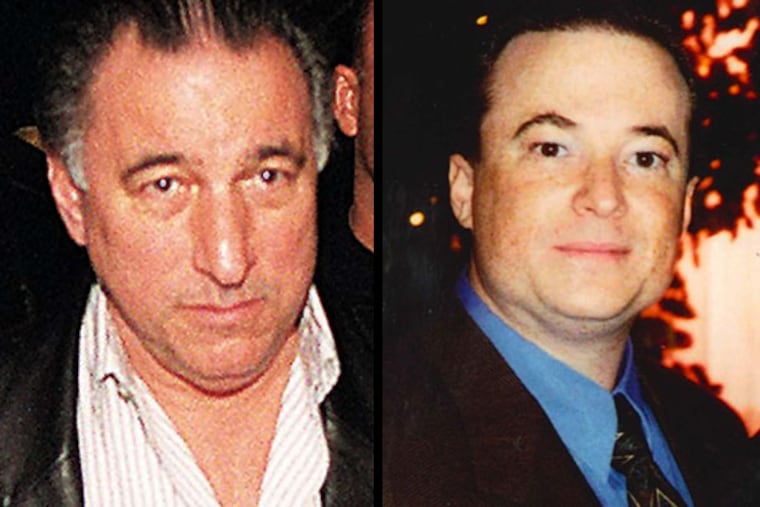Jury in mob trial tells judge: We're deadlocked
PHILADELPHIA They were the five words federal prosecutors trying the case against reputed Philadelphia mob boss Joseph Ligambi hoped never to hear again.

PHILADELPHIA They were the five words federal prosecutors trying the case against reputed Philadelphia mob boss Joseph Ligambi hoped never to hear again.
Yet there they were Monday, in a terse note jurors delivered to U.S. District Judge Eduardo Robreno just before 1 p.m.
We are at an impasse.
After three days of deliberations and two votes, the panel of nine women and one man reported that they could not reach "unanimity on any one count" in the racketeering conspiracy case against the 74-year-old alleged mob don and his nephew George Borgesi, 50.
The news came nearly a year after a first set of jurors found themselves mired in similar deadlock, resulting in a mistrial.
Robreno sent the jurors back to try again. But their reports of troubled negotiations raised the prospect of another inconclusive ending to a case the government has tried to pin on Ligambi for more than a decade.
"I think it's way too early," Robreno said in court Monday outside the jury's presence. "We had 25 days of trial and only three days of deliberations so far."
Since November, prosecutors had regaled the jury with tales of Ligambi's and Borgesi's purported misdeeds. They allege the two presided over a crime family that controlled the mob's illegal gambling and loan-sharking operations for more than a decade.
Defense lawyers have derided the charges as weak and maintained that the FBI turned to untrustworthy informants to build its case when their own investigation turned up nothing.
Despite the announcement Monday that his arguments had swayed at least some members of the jury, Ligambi's attorney, Edwin Jacobs Jr., appeared less than pleased.
"I should get credit for time served on this case," he joked with his handcuffed client.
Later, addressing the young U.S. marshal who escorted Ligambi into the courtroom, Jacobs added: "I've been trying this case since you were in the fourth grade."
For their part, Ligambi and Borgesi were all smiles at the prospect of dodging a potential conviction once again. Their gathered family members, meanwhile, debated whether the government would try the case for a third time should this jury also prove unable to reach a verdict.
Prosecutors brushed off such talk.
"We agree it's early," Assistant U.S. Attorney Frank Labor said. "To throw in the towel just because they had two votes. . . . It's very early in the process."
During the first trial against the mob figures last year, jurors slogged through a grueling 21 days of deliberations, including some weekends, before Robreno finally allowed them to call it quits.
In the end, they acquitted Ligambi of five of the counts of loan-sharking, theft and bookmaking he faced, leaving four others for the current jury to take up. They cleared Borgesi of all but one of the counts against him.
And even then, it was 18 days in before that panel first reported a possible impasse.
By contrast, this jury appears to be taking its discussion at a more leisurely pace. Since the jurors were handed the case Wednesday, they have deliberated for only seven hours each day. Their discussions were canceled Friday after one member reported he could not make it to court because his cat was sick.
In Monday's note to Robreno, they described the outcome of the two votes they had taken so far as "final."
Still, the judge remained hopeful they could move toward completing their work when deliberations resume Tuesday. Jacobs saw something more ominous in their words.
"These are final votes," he told the judge. "This is a very explicit note."